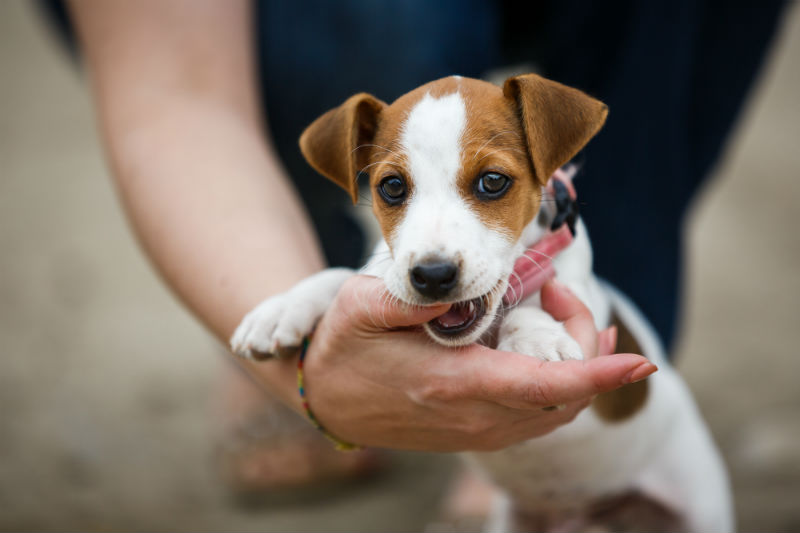Puppies, we all love puppies – even when those sharp baby teeth chew on your ankle or chair legs. Deciduous teeth are the correct term used for those annoying little puppy teeth; deciduous teeth are temporary teeth that will fall out over time and be replaced with permanent teeth as the puppy matures.
During their first six months of life, puppies will develop two sets of teeth – deciduous and permanent teeth. Here are a few facts to help you understand the role of those cute and pointy little chompers.
Puppy Teeth Facts
- At birth, puppies are born toothless (just like their human counterparts).
- At around the 2-week mark the deciduous teeth start to erupt, and by 8 to 10 weeks of age, they are all in place.
- Puppies have 28 deciduous teeth.
- The incisors usually erupt first followed by the canine teeth and then the premolars.
- Puppies start to lose deciduous teeth at around four months of age and continue losing them until they are approximately 6 months old.
- As soon as the deciduous teeth begin to fall out, the permanent teeth start to erupt.
When puppies start the teething process, it is best to allow the teeth to fall out on their own. Do not try to pull a loose tooth out of your pups’ mouth – there is the danger of breaking the root and causing an infection to occur. Pick chew toys that are soft and flexible, if it cannot flex or bend then it is too hard to give to your puppy. A fillable toy like the Kong brand can be stuffed with canned food and frozen to help provide some relief. Avoid things like pressed rawhide, antlers and bones as they can cause damage to the erupting adult teeth. These types of chew items should also not be given to adult dogs as they can cause significant damage to an adult dogs teeth.
If by 6 – 7 months of age there are deciduous teeth still present, then crowding of the permanent teeth can become a problem. Baby teeth that are left in place and show no signs of falling out on their own can cause dental problems, such as occlusion and other periodontal diseases. In most cases, deciduous teeth that have not fallen out can be removed during your puppies spay or neuter surgery, and this then allows the adult teeth to erupt without any crowding occurring.
Fun Facts!
- Dogs have 42 permanent teeth
- Cats have 30
- Humans have 32
Some breeds such as pugs and French Bulldogs have less adult teeth because their smaller mouths cannot accommodate a full set of 42 teeth.
If you have any questions regarding your puppies dental health – please call the clinic to discuss your concerns with one of our Veterinary Staff.
Written by Marie Hearn, Clinic Manager
